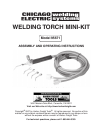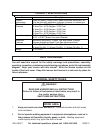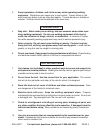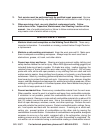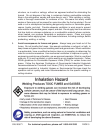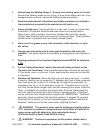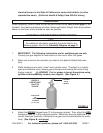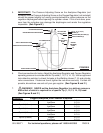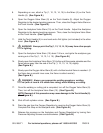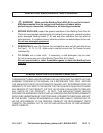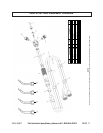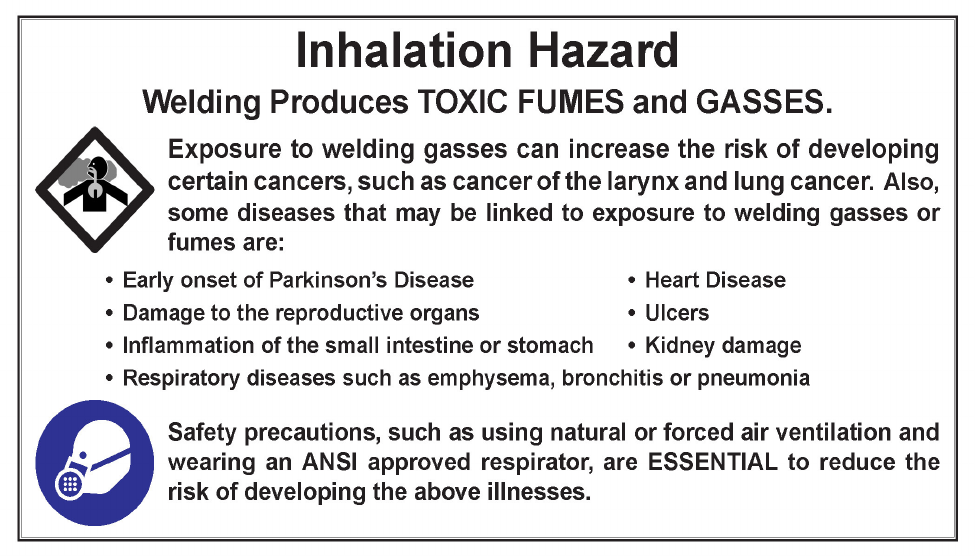
structure, as in walls or ceilings, without an approved method for eliminating the
hazard. Do not dispose of hot slag in containers holding combustible materials.
Keep a fire extinguisher nearby and know how to use it. After welding or cutting,
make a thorough examination for evidence of fire. Be aware that easily visible
smoke or flame may not be present for some time after the fire has started. Do not
weld or cut in atmospheres containing dangerously reactive or flammable gases,
vapors, liquids, and dust. Provide adequate ventilation in work areas to prevent
accumulation of flammable gases, vapors, and dust. Do not apply heat to a container
that has held an unknown substance or a combustible material whose contents,
when heated, can produce flammable or explosive vapors. Clean and purge
containers before applying heat. Vent closed containers, including castings, before
preheating, welding, or cutting.
5. Avoid overexposure to fumes and gases. Always keep your head out of the
fumes. Do not breathe the fumes. Use enough ventilation or exhaust, or both, to
keep fumes and gases from your breathing zone and general area. Where ventilation
is questionable, have a qualified technician take an air sampling to determine the
need for corrective measures. Use mechanical ventilation to improve air quality. If
engineering controls are not feasible, use an approved respirator. Work in a confined
area only if it is well ventilated, or while wearing an air-supplied respirator. Follow
OSHA guidelines for Permissible Exposure Limits (PEL’s) for various fumes and
gases. Follow the American Conference of Governmental Industrial Hygienists
recommendations for Threshold Limit Values (TLV’s) for fumes and gases. Have a
recognized specialist in Industrial Hygiene or Environmental Services check the
operation and air quality and make recommendations for the specific welding or
cutting situation.
SKU 95671 For technical questions, please call 1-800-444-3353 PAGE 5



